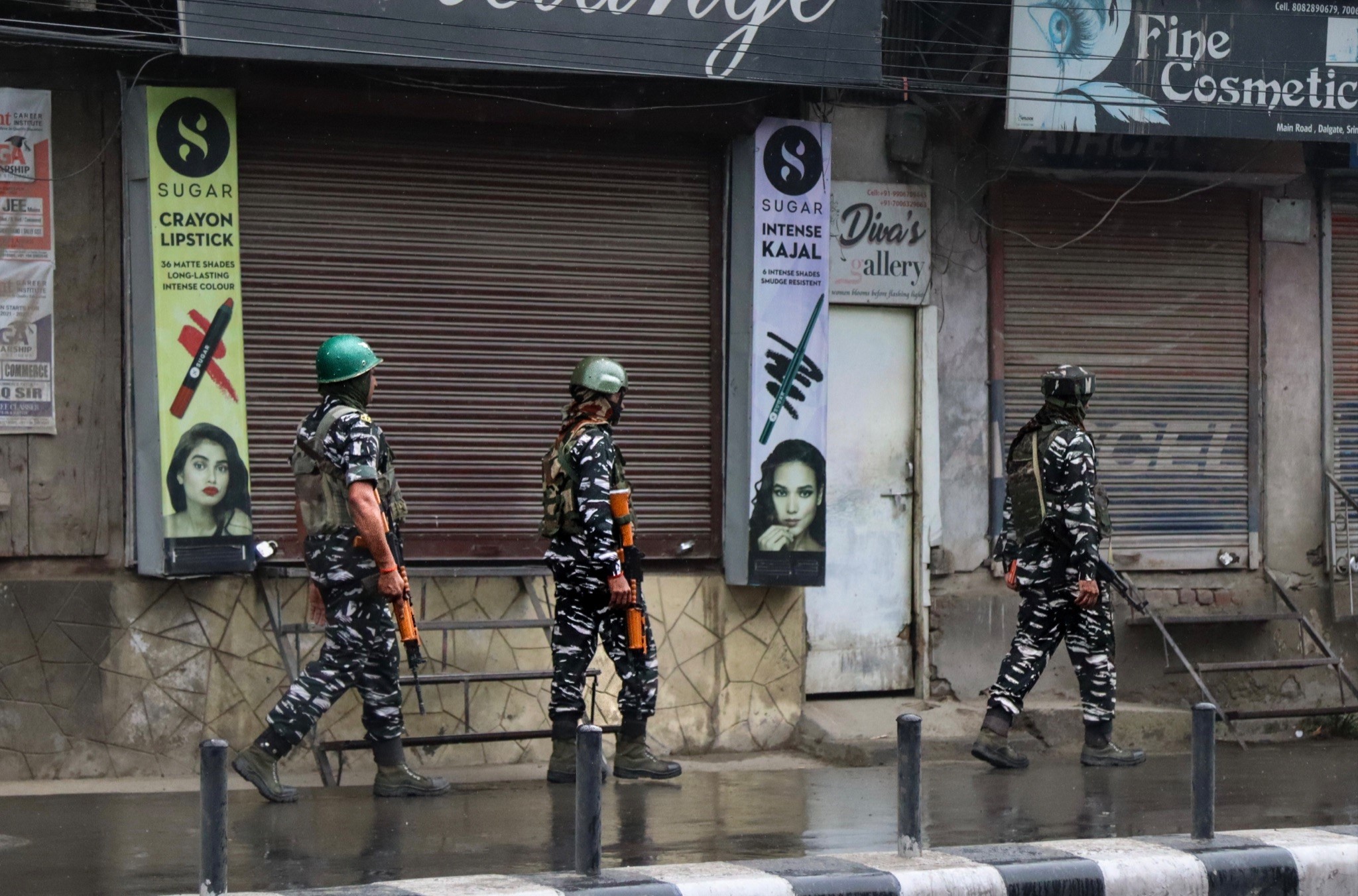
As India prepares to hold assembly elections in the disputed territory of Jammu and Kashmir (J&K), a cloud of skepticism and dissent hovers over the region. For many Kashmiris and their leaders, these elections represent not a democratic exercise but a cynical attempt to legitimize India’s occupation and control over the region. The announcement of the elections has been met with sharp criticism from prominent Kashmiri leaders such as Altaf Hussain Wani and Abdul Hameed Lone, who have denounced the move as a desperate ploy to deceive both the international community and the local population. This article explores the complexities and consequences of holding elections in a region where the very foundation of democratic principles is under siege.
Since the abrogation of Articles 370 and 35A in August 2019, Jammu and Kashmir has undergone a dramatic and controversial transformation. Once a state with special autonomous status, it was downgraded to a union territory under direct control of the central government in New Delhi. This move was widely condemned by Kashmiris and has been perceived as an assault on the region’s unique cultural, political, and religious identity. The central government’s subsequent actions, including changes to domicile laws and the intensification of military presence, have only deepened the sense of alienation and resentment among the local population. In this context, the upcoming elections are viewed by many as an attempt to present a veneer of normalcy in a region that remains deeply troubled. The Indian government’s narrative is one of democratic engagement and development, but this is a narrative that rings hollow for those who live under the constant shadow of militarization and political repression.
The skepticism surrounding the elections is not without reason. Historically, elections in Jammu and Kashmir have been marred by low voter turnout, allegations of rigging, and widespread disenchantment with the political process. For many Kashmiris, the electoral process is seen as a tool used by the Indian state to project an image of legitimacy while the underlying issues of self-determination and human rights remain unaddressed. Leaders like Altaf Hussain Wani have been vocal in their criticism, labeling the upcoming elections as a “drama” designed to create a false impression of normalcy. Wani’s assertion that these elections are nothing but a sham reflects the broader sentiment among Kashmiris who feel that their voices are being silenced and their aspirations ignored. The elections, in their view, do not represent a genuine opportunity for democratic expression but rather a strategic maneuver by the Indian government to consolidate its control over the region.
The Indian government’s portrayal of the elections as a step towards restoring normalcy and democracy in Jammu and Kashmir is met with widespread skepticism. While the central government insists that the elections are a democratic exercise, the reality on the ground tells a different story. The ongoing militarization, the curtailment of civil liberties, and the lack of meaningful political engagement with local leaders have created an environment where true democratic expression is impossible. For many Kashmiris, the elections are a façade—an attempt by the Indian state to project an image of stability and legitimacy to the outside world while continuing to suppress the region’s demand for self-determination. The electoral process, rather than addressing the root causes of the conflict, serves to entrench the status quo and perpetuate the cycle of violence and repression.
The upcoming elections in Jammu and Kashmir may proceed as planned, but their legitimacy and effectiveness are in serious doubt. For the elections to be meaningful, they must be more than just a box-ticking exercise. They must be accompanied by a genuine commitment to addressing the aspirations of the Kashmiri people, including their right to self-determination as enshrined in United Nations Security Council resolutions.
A comprehensive approach to resolving the Kashmir issue is needed—one that goes beyond electoral politics and addresses the fundamental grievances of the people. This includes the demilitarization of the region, the restoration of civil liberties, and meaningful dialogue with all stakeholders, including those who have been marginalized or excluded from the political process. Ultimately, the future of Jammu and Kashmir cannot be decided through elections alone. It requires a concerted effort to heal the wounds of the past, respect the rights and aspirations of the Kashmiri people, and work towards a peaceful and just resolution of the conflict. Only then can the promise of democracy be truly realized in this troubled region
